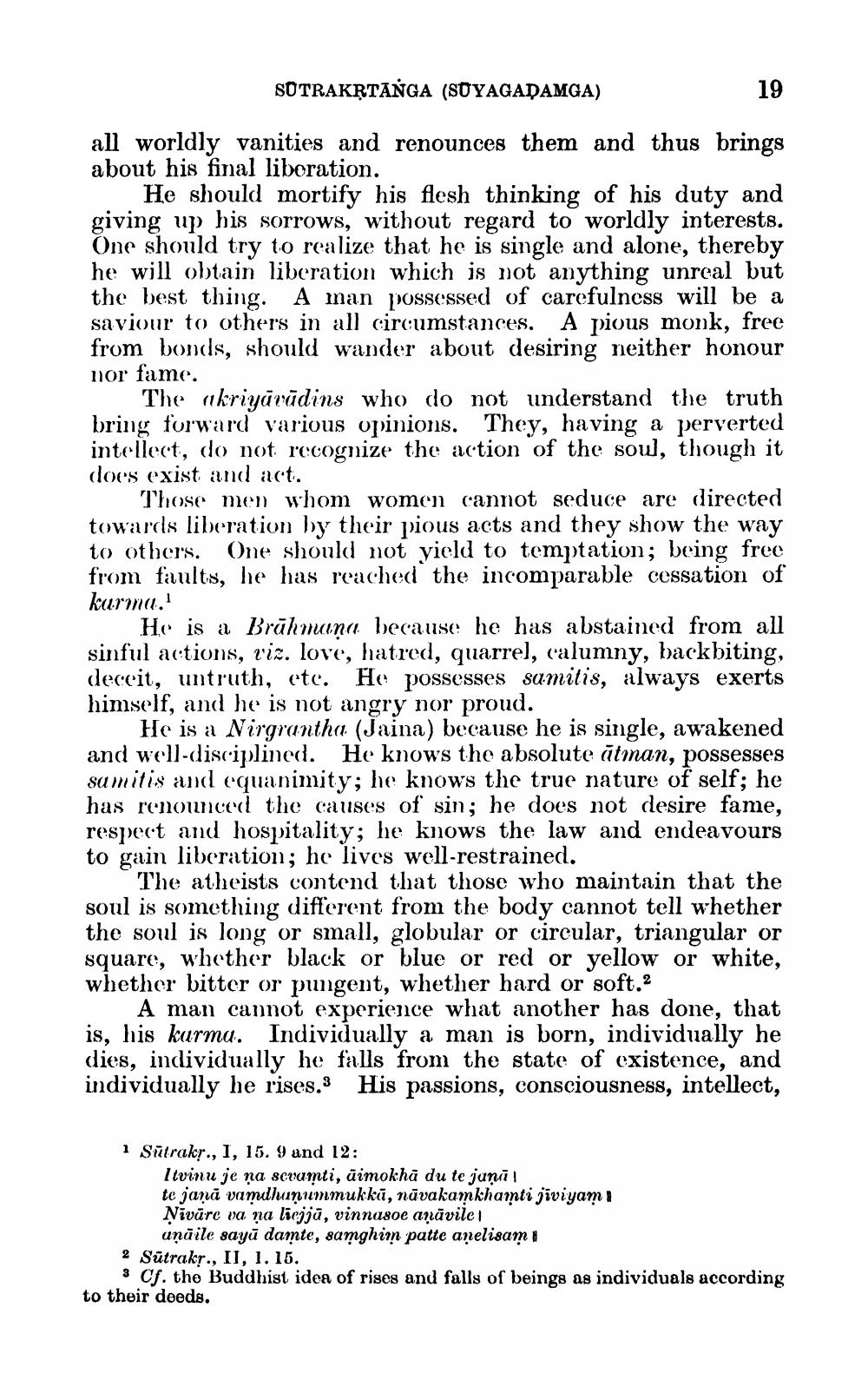________________
SOTRAKĄTANGA (SUYAGADAMGA)
19
all worldly vanities and renounces them and thus brings about his final liboration.
He should mortify his flesh thinking of his duty and giving up his sorrows, without regard to worldly interests. One should try to realize that he is single and alone, thereby he will obtain liberation which is not anything unreal but the best thing. A man possessed of carefulness will be a saviour to others in all circumstances. A pious monk, free from bonds, should wander about desiring neither honour nor fame.
The akriyāvādins who do not understand the truth bring forward various opinions. They, having a perverted intellect, do not recognize the action of the soul, though it does exist and act.
Those men whom women cannot seduce are directed towards liberation by their pious acts and they show the way to others. One should not yield to temptation; being free from faults, he has reached the incomparable cessation of kurma.
He is a Brāhmuina because he has abstained from all sinful actions, viz. love, hatred, quarrel, calumny, backbiting, deceit, untruth, etc. He possesses samitis, always exerts himself, and he is not angry nor proud.
He is a Nirarantha (Jaina) because he is single, awakened and well-disciplined. He knows the absolute ātman, possesses sumitis and equanimity; he knows the true nature of self; he has renounced the causes of sin; he does not desire fame, respect and hospitality; he knows the law and endeavours to gain liberation; he lives well-restrained.
The atheists contend that those who maintain that the soul is something different from the body cannot tell whether the soul is long or small, globular or circular, triangular or square, whether black or blue or red or yellow or white, whether bitter or pungent, whether hard or soft.2
A man cannot experience what another has done, that
his kurma. Individually a man is born, individually he dies, individually he falls from the state of existence, and individually he rises. His passions, consciousness, intellect,
1 Sūtrakr., I, 15. 9 and 12:
Itvinu je na scuamti, äimokhā du te juni! te jană vamilanummukku, nāvakamkhamti jiviyamı Nivārc va na liejju, vinnasoe anāvile
uņāile sayū damte, samghim patte anelisam 2 Sūtrakr., II, 1. 15.
3 Cf. the Buddhist idea of rises and falls of beings as individuals according to their deeds.




